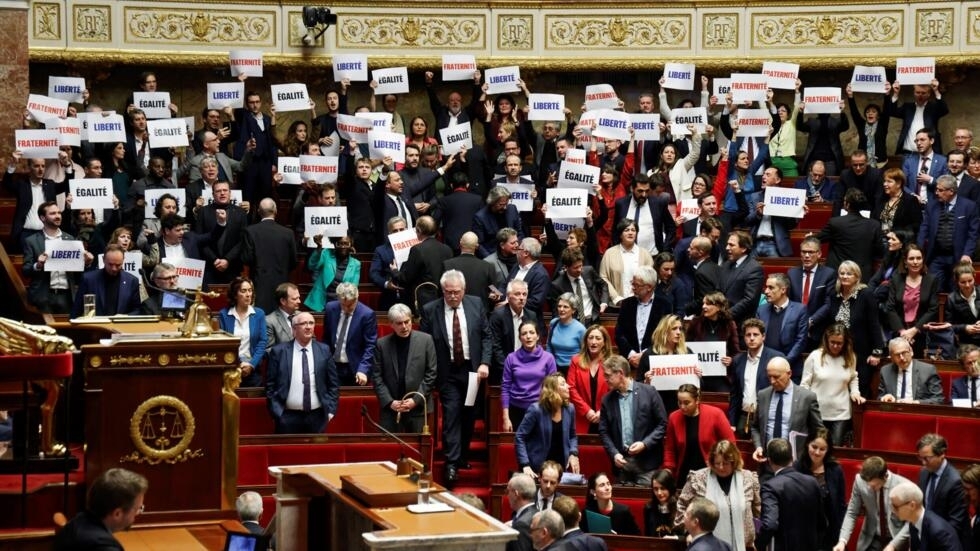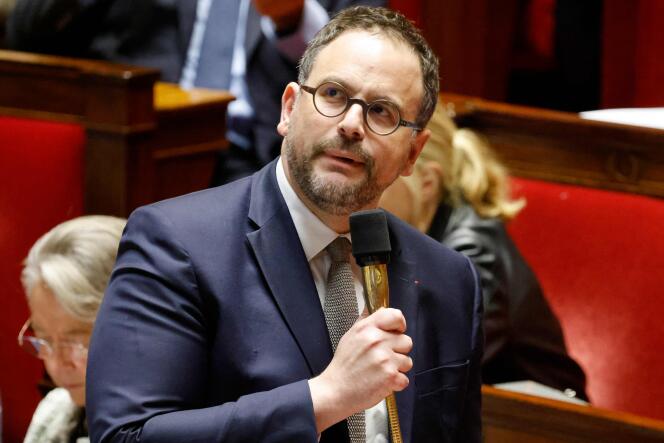France's health minister resigned following the passing of new immigration laws supported by the far-right.
Following 18 months of wrangling over one of the flagship reforms of Macron's second term, both chambers of parliament backed the controversial legislation on Tuesday, with Marine Le Pen's National Rally (RN) endorsing the bill in a move some media dubbed a "kiss of death."

A fourth of Macron's 251 parliamentarians voted against or abstained on the bill, and numerous left-wing ministers disagreed.
Despite overnight reports, Health Minister Aurelien Rousseau resigned, and there were no apparent signs of other ministers following suit.
Rousseau did not attend a cabinet meeting on Wednesday morning and will be temporarily replaced by junior minister Agnes Firmin Le Bodo, according to government spokesman Olivier Veran.

Macron was scheduled to speak about the reform in a television appearance on Wednesday evening, while Prime Minister Elisabeth Borne attempted to put on a brave face, insisting the law's passage had not caused a "crisis in the majority."
Borne stated on France Inter that some of the measures were undoubtedly unlawful, adding that the language "would have to evolve" after the Constitutional Council studied it following Macron's referral.
"We wanted to pass a law on useful, effective measures that our fellow citizens expect, with two objectives: to remove more quickly and more effectively those who have no right to be in France, and to better integrate those we choose to welcome," she went on to say.
The measure's text had to be toughened in response to right-wing pressure, but Borne emphasized that in the end, the ruling party did not need the support of Le Pen's far-right RN to pass the bill.

Macron, who defeated Le Pen to secure five more years in 2022, has vowed to thwart her rise, but he has been accused of pandering to the far-right to get through his reform plan.
"The immigration law will leave deep scars," warned French right-wing Le Figaro, adding that Macron "had lost on all fronts."
Liberation, a left-wing publication, called his party's setback a "moral defeat."
France has a long history of accepting refugees and immigrants, but an increase in the number of asylum seekers, a chronic shortage of affordable housing, and a cost-of-living crisis have exacerbated the country's social tensions.
Dozens of non-governmental organizations (NGOs) have condemned what they call the "most regressive" immigration bill in decades.









